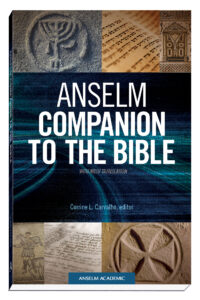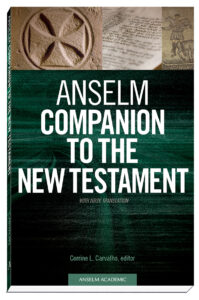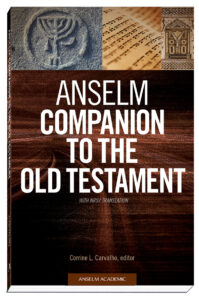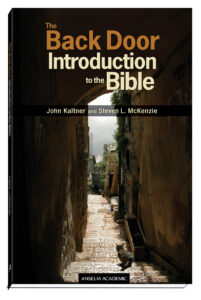Beyond the Obvious
Doorways to Understanding the New Testament
About This Book
Overview
How many Gospels are there?
Most people would answer, “Four.” But is that the correct answer? Beyond the Obvious demonstrates that what may seem obvious is, upon reflection, a doorway to exploring some of the most important questions about the New Testament, the early church, and Christianity by examining what might otherwise be overlooked. The book’s unique essay format allows for exploration of seven crucial observations about the New Testament—such as “The New Testament is a library” or “Paul wrote first”—across multiple texts, bundling together information often analyzed in distinct parts. With thoughtful reflection questions and suggested reading lists, Beyond the Obvious: Doorways to Understanding the New Testament informs continued discussion and invites critical, innovative thinking.
Details
| Weight | 0.9 lbs |
|---|---|
| Dimensions | 5.375 × 1.5 × 8.25 in |
| Format | Softcover |
| Print ISBN | 978-1-59982-271-6 |
| Pages | 254 |
| Item # | 7061 |
|---|
Customer Reviews
“In Beyond the Obvious: Doorways to Understanding the New Testament, Dale Walker has written an engaging, insightful collection of essays that offers a fresh way to introduce the historical study of the New Testament to students of the Bible. With clarity and brevity, each essay explores a critical observation to open up historical analysis of the New Testament for the reader. Each essay is accessible to the nonspecialist and offers an ideal prompt for classroom discussion. This book is an excellent guide through the historical complexity of the production of the texts that came to be included in the New Testament.”
“Beyond the Obvious: Doorways to Understanding the New Testament, represents an introduction to the New Testament unlike any other. Rather than outlining and analyzing each New Testament text, Walker begins each of the seven chapters of the work with an observation about the New Testament. In each chapter, Walker then goes ‘beyond the obvious’ to explore the ramifications of the observation. . . . Walker’s writing is superb. Instead of overwhelming his readers with factual information, he instead demonstrates to them how scholars investigate texts. Walker’s book meets students where they are intellectually, and it sensitively leads them to a point where they can begin their own exploration of the New Testament texts.”
“[Donald Dale Walker’s] Beyond the Obvious: Doorways to Understanding the New Testament provides reliable, incisive treatments of classic problems of scholarship. But it does this while also modeling the sort of creative, sustained development of basic premises that professors want to see in student essays. In Walker’s hands, seemingly obvious points become rich with historical meaning, jumping-off points for exploring the wider implications of critical, historical study. [This book] should be ideal not only for generating classroom discussion but for anyone looking for an accessible guide to what the historical study of the New Testament is really all about.”
Table of Contents
Table of Contents
- Introduction
- Observation # 1:
- The New Testament Is a Library
- Observation # 2:
- The New Testament Was Written in Greek
- Observation # 3:
- The New Testament Was Written
- Observation # 4:
- There Are Four Gospels
- Observation # 5:
- The Gospels Are Anonymous
- Observation # 6:
- There Are More than Four Gospels
- Observation # 7:
- Paul Wrote First
- Concluding Remarks:
- Creativity Past and Present
- Glossary
Professional Reviews
| This book uses an unusual format to offer graduate students an introduction to an academic (as distinct from a theological or pastoral) appreciation of the New Testament. Walker, who currently serves as development director of the University of Chicago Divinity School, has fashioned seven essays on what he considers key facts about the New Testament writings, facts important for grasping the nature and context of these biblical texts. They include such affirmations as: the New Testament is a “library” (rather than a single work); it was written in Greek; it is, in fact, a written text; there are four canonical gospels, but other gospels were produced by early Christianity; the evangelists were anonymous; and Paul wrote before the gospels were composed. Study questions and a select bibliography conclude each essay. |
The book explores seven general observations about the New Testament and seeks to demonstrate that what seems obvious and straightforward is, upon reflection, a way of entering into some of the most important questions about the NT. After a seven-page introduction, it treats the following observations: the NT is a library, the NT was written in Greek, the NT was written, there are four Gospels, the Gospels are anonymous, there are more than four Gospels, and Paul wrote first. Each chapter provides questions for discussion and a bibliography for further reading. A seven-page glossary is included. Walker, director of development at the University of Chicago Divinity School, concludes by highlighting six ways creativity arises in the NT writings and the scholars who study them: new data, methods, perspectives, social groups, circumstances, and rhetoric.







